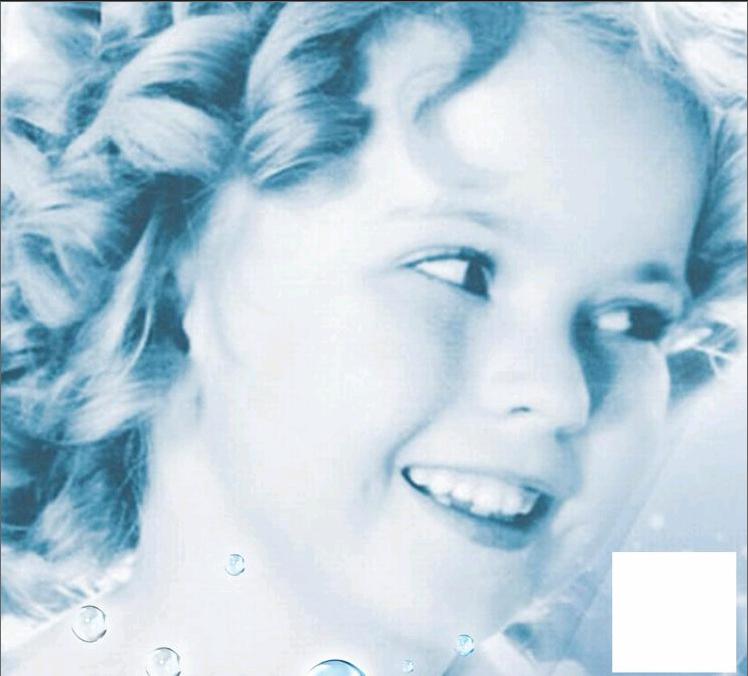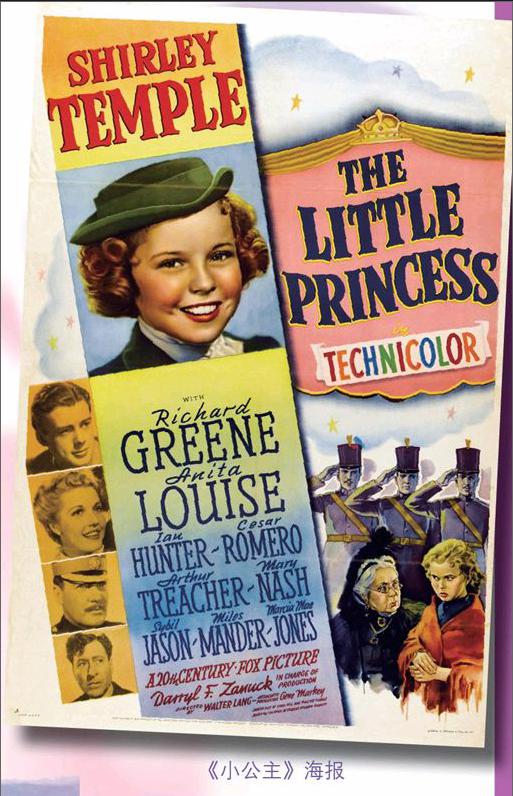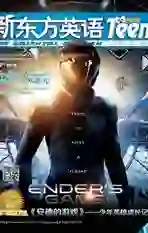我的秀兰·邓波儿
2014-04-01文/BySusanBurton译/张玲
文/By+Susan+Burton+译/张玲



In the early 1980s, in Grand Rapids1), Michigan, Shirley Temple movies were shown on Sunday mornings, on cable TV. When we got our first VCR, in 1982, my father would set the timer to record the movie, and it would be waiting for me and my younger sister when we got home from church. Sometimes, he would stay home from church so that he could use what we called "the pause control" to excise2) the commercials. Even then, at age nine, I knew that this had as much to do with his love for us (and for new technology) as it did with his ambivalence3) about church.
I adored Shirley Temple. I wanted to be a child star, and, even nearly a half century after the height of her stardom, Shirley seemed to me to be the paradigm4) of one. I knew that she was the youngest person ever to win an Oscar (though this fact was asterisked5), because it was a special children's Oscar, not a real one), and that during the Depression6) she had been a top-grossing7) performer. I knew that her stand-in8) was named Mary Lou Isleib, and that Shirley had been considered for Dorothy in The Wizard of Oz9). I knew that she'd had trouble transitioning into roles for young women; that she'd had an early, brief first marriage and a longer second one, during which she'd had breast cancer and had become the Ambassador to Ghana. I knew all this, and more, because I read everything I could about Temple, including two books that remain on my shelves: Robert Windeler's The Films of Shirley Temple, its spine10) now white, its cover still hot pink, and The Shirley Temple Story, a silver-jacketed hardcover I bought in the biographies section at Schuler Books on Twenty-eighth Street.
While I liked Shirley's movies, I wasn't especially moved by the story lines or the interactions between characters (with the exception of The Little Princess, in which Sara Crewe11) desperately searches the wards12) of the wounded soldiers for her father). I was stirred by Shirley herself—stirred by the fact of this little girl on-screen. There was enormous power in watching her doing what I wanted to do—a little girl who I knew had been at the center not only of these films but also of the culture. There was something about the movies being old that mattered, too. There was a feeling of discovery, a feeling that Shirley was mine.
In our back yard, I belted13) Shirley's songs. In fourth grade, I sang "At the Codfish Ball", from Captain January14), in the school talent show. That was the same year I wrote Shirley a letter. Some weeks after I sent the note, I received one from her, a three-by-five card on which, in black ink, she wrote a few short lines and signed her name, "Shirley Temple Black". My mother put the card in a Lucite15) frame that I placed on my dressing table.endprint
My sadness at hearing of Shirley Temple's death has much to do with the reminder of that far-gone time when I was her fan. When I was nine, my parents were still married (four years later, they divorced); I was still their little girl in my original house. My parents indulged my Shirley Temple interest. One day after school, my mother took me to a dark, musty16) used-bookstore I'd found in the Yellow Pages. I also loved Judy Garland17), and the proprietor18) of the store told me, "I have a customer just like you, someone who is interested in those same two, Shirley Temple and Judy Garland." I still sometimes think about this person in Grand Rapids who was my double19).
The year I was nine, I received a set of newly reissued vinyl20) Shirley Temple dolls for Christmas. But my favorite present was something my father bought for me in a used-bookstore in Ann Arbor, on the other side of the state. Used-bookstores were my father's churches, and at this one, the Dawn Treader, he'd found a Shirley Temple scrapbook21) from the 1930s. Onto its blank pages, someone from that same era—it seemed to me like a woman, because the work was too neat for a little girl—had pasted articles about Shirley Temple that she'd scissored out of movie magazines and local Michigan newspapers. I felt I knew this woman somehow, knew her across time and across the state, knew the thrill of a fellow-fan opening the newspaper to see a story about her favorite star. I was amazed that my father had found this scrapbook in a mysterious store with a fantasy-novel name, and I was moved that he had known what its stiff22) pages and yellowed articles would mean to me. It's a very Shirley Temple-movie ending, a moment of tenderness between a daughter and a father, but what can I say? I still have that scrapbook.
20世纪80年代初,密歇根州大急流城的有线电视每周日上午都会播出秀兰·邓波儿的电影。1982年我们拥有了第一台录像机后,爸爸就会设置好定时器把电影录下来,这样等我和妹妹从教堂回来时,电影就已经录好等着我们了。有时,爸爸也会留在家里不去教堂,这样就可以用我们称之为“暂停控制”的功能删掉电影中插播的广告。即使那时我只有九岁,我也知道他这么做既是出于对我们的爱(以及对新技术的热衷),同时也是因为他对教堂的那种矛盾心理。
那时的我非常喜欢秀兰·邓波儿。我想当一名童星,而且,即使那时距秀兰明星生涯的巅峰时期已经过去了近半个世纪,她在我眼中依然是明星的典范。我知道她是最年轻的奥斯卡奖得主(不过这件事得加个注释,因为那是一个特殊的儿童奥斯卡奖,并不是真正的奥斯卡金像奖),也知道在经济大萧条时期,她一直是票房收入最高的演员。我知道她的替身演员名叫玛丽·卢·伊斯莱布,还知道《绿野仙踪》的制片方曾考虑让她出演多萝西。我知道她在转型出演少女角色时遇到了困难;还知道她早早就结了婚,经历了短暂的第一次婚姻和长久的第二次婚姻,在第二段婚姻期间,她患过乳腺癌,出任过驻加纳大使。我知道所有这些,甚至还知道更多,因为我尽我所能读了有关邓波儿的一切,包括现在仍放在我书架上的两本书。一本是罗伯特·温德勒所著的《秀兰·邓波儿的电影》,这本书的书脊如今已经发白,其封面却依然是鲜艳的粉色;另一本是我在第28街的舒勒书店传记区买到的《秀兰·邓波儿的故事》,有着银色的护封和精装的硬封皮。
虽然我很喜欢秀兰的电影,但让我特别感动的并不是片中的故事情节或人物间的相互关系(除了电影《小公主》中萨拉·克鲁在受伤士兵的病房里拼命寻找她爸爸的那一段)。深深打动我的是秀兰本身——是这个小女孩出现在银幕上的事实。看她做着我想做的事情,我总是感到热血沸腾——一个我认识的小女孩不仅一直是所有这些电影的中心,而且还是美国文化的中心。这些电影都是老电影,这一点也很重要。看她的电影总让我有种探索的感觉,让我觉得秀兰是属于我的。endprint
在我家后院,我常扯着嗓子唱秀兰的歌。四年级时,我在学校的才艺秀上演唱了电影《一月船长》中的“鳕鱼球歌”。就在同一年,我给秀兰写了一封信。信寄出几周后,我收到了她的回信。那是一张3x5英寸的卡片,她用黑墨水在上面写了短短几行字,并签上了她的名字“秀兰·邓波儿·布莱克”。妈妈把这张卡片装进了我摆在梳妆台上的有机玻璃相框里。
如今听到秀兰·邓波儿去世的噩耗,我感到很伤心,很大程度上是因为这让我想起了我是她粉丝时的那段早已逝去的时光。那时我九岁,我的父母还在一起(四年后他们离婚了),我还是他们的宝贝女儿,住在我家原来的房子里。那时,我的父母纵容着我对秀兰·邓波儿的迷恋。一天放学后,妈妈带我来到一家阴暗的、泛着霉味儿的旧书店,那是我在黄页上找到的一家书店。我也喜欢朱迪·加兰。那个书店的老板告诉我:“我有一个顾客和你一样,也喜欢秀兰·邓波儿和朱迪·加兰这两个人。”现在,我有时仍会想起大急流城那个和我的爱好酷似的人。
九岁那年的圣诞节,我收到了一套新发售的秀兰·邓波儿塑胶娃娃。但我最喜欢的礼物是爸爸在位于密歇根州另一头的安阿伯市的一家旧书店买到的一样东西。旧书店就是爸爸的“教堂”。在这家名为“黎明行路者”的书店里,爸爸找到了一本20世纪30年代的秀兰·邓波儿剪贴簿。在一页页原本空白的页面上,与秀兰同时代的某个人——我觉得像是个女人,因为剪贴的活儿做得非常精细整洁,小女孩是做不到的——把她从电影杂志和密歇根州当地的报纸上剪下的关于秀兰·邓波儿的文章都贴在了上面。不知为何,我觉得我仿佛认识这个女人,跨越了时间和空间与她神交,也明白她这样一个和我有着相同偶像的粉丝翻开报纸看到她最喜欢的明星的报道时那种激动的心情。爸爸居然在一家有着幻想小说书名般店名的神秘书店里发现了这本剪贴簿,令我异常惊奇;而且爸爸竟然知道这些发硬的书页和泛黄的旧纸张上的文章对我来说意味着什么,让我感动不已。这恰如秀兰·邓波儿电影的经典结尾,一对父女尽享温情时刻,但我又能说些什么呢?直到现在,我仍旧保存着这本剪贴簿。
1. Grand Rapids: 大急流城,美国密歇根州第二大城市(仅次于底特律),因格兰德河(Grand River)的急流流经该城市而得名。
2. excise [?eksa?z] vt. 删去
3. ambivalence [?m?b?v?l?ns] n. 矛盾情绪(或态度)
4. paradigm [?p?r?da?m] n. 范例,样式
5. asterisk [??st?r?sk] vt. 加星标于
6. the Depression: 经济大萧条,指第二次世界大战前在世界范围内发生的经济萧条事件,开始于20世纪30年代初期,结束于30年代晚期或40年代中期,是20世纪历时最长、范围最广、影响最深的一次经济衰退。
7. gross [ɡr??s] vi. 赚得总收入
8. stand-in: (电影、戏剧中的)临时替代演员;替身演员
9. The Wizard of Oz: 《绿野仙踪》,美国的一部歌舞片,改编自L·弗兰克·鲍姆(L. Frank Baum, 1856~1919)脍炙人口的儿童小说《绿野仙踪》(The Wonderful Wizard of Oz),于1939年上映。故事的主角是多萝西(Dorothy),由当时的另一位著名女星朱迪·加兰出演。
10. spine [spa?n] n. 书脊
11. Sara Crewe: 萨拉·克鲁,影片《小公主》(The Little Princess)中的女主角,由时年11岁的秀兰·邓波儿饰演。
12. ward [w??d] n. 病房,监护室
13. belt [belt] vt. 劲儿十足地演唱(或演奏)
14. Captain January: 《一月船长》,美国1936年上映的一部歌舞片,时年八岁的秀兰·邓波儿出演了片中的女主角。
15. Lucite [?lusa?t] n. 有机玻璃
16. musty [?m?sti] adj. 霉的,发霉的
17. Judy Garland: 朱迪·加兰(1922~1969),美国演员、歌手及歌舞剧演员,1997年被授予格莱美终生成就奖,并入驻格莱美名人堂,1999年被美国电影学会评为美国电影史上最伟大的十位女艺人之一。
18. proprietor [pr??pra??t?(r)] n. 所有人,业主
19. double [?d?bl] n. 酷似的人
20. vinyl [?va?nl] n. 聚乙烯基织物,一种塑胶材料
21. scrapbook [?skr?pb?k] n. 剪贴簿
22. stiff [st?f] adj. 硬的;僵硬的endprint
